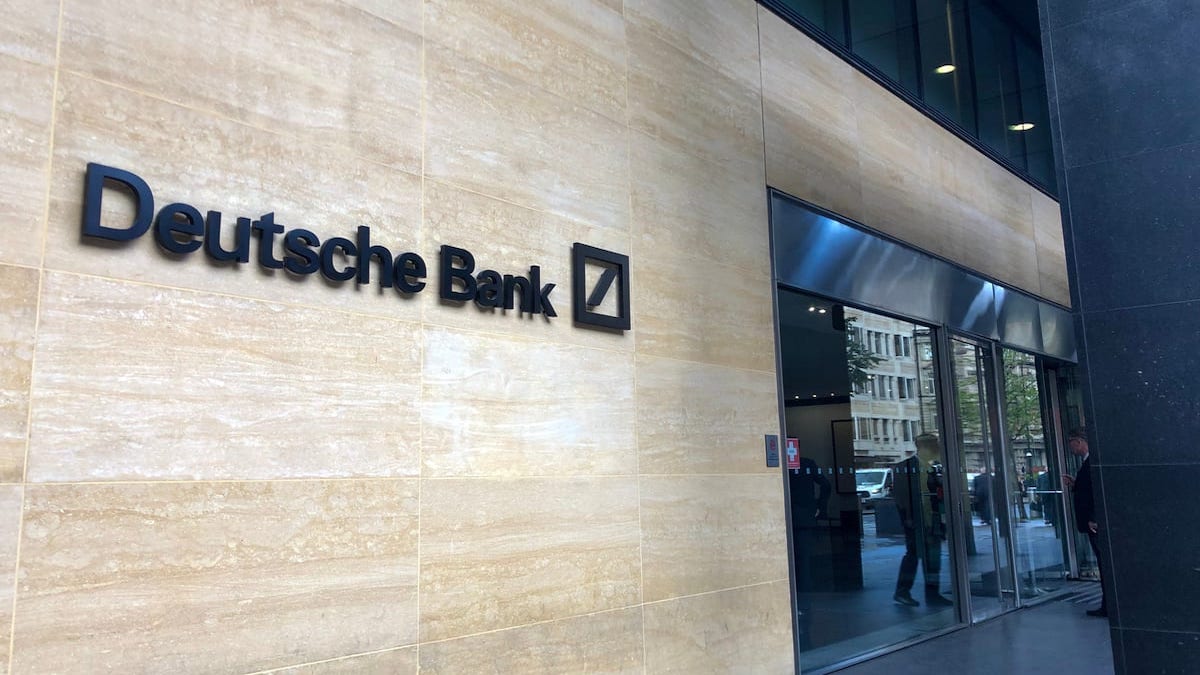Deutsche Bank AG (DBKGn.DE) is under fire for its recent blunder, where it reportedly had swept shortcomings under the rug while signing deals behind closed doors with notorious, perilous billionaires like Jeffrey Epstein, and similarly politically sensitive Russian oligarchs. The case is Karimi v. Deutsche Bank Aktiengesellschaft et al, at the U.S District Court—Southern District of New York.
The German bank’s Know Your Customer (KVC) and other safety walls like the anti-monetary laundering protocols were seemingly futile. These processes exist to be thorough with any money-related deals made by the bank, but in this case, it was merely a facade while far bigger issues were bubbling away from the eyes of the law. The Manhattan District Judge—Jed Rakoff said the investors claim in their presented class action that such is the reality and the market price plummeted as the truth was unveiled. Its stocks are now unstable and it’s only natural for the shareholders to feel over the edge in this unbidden situation.
The lawsuit has identified investors in Deutsche Bank loopholes from March 17th of 2017 to May 12th of this year, where it’s been attested that the bank has made repeated misstatements about its imperfect practices. Sewing, after gaining influence in 2018, has a history of enhancing records of profit while simultaneously trying to rebuild shareholder trust which the bank yet again had lost after the internal controls failure incident. The rich do have their influence and authority, and the law constantly tries to triumph over them.
On Monday, Rakoff’s verdict was a decision well thought out with 30 pages of his understanding, he’d stated publicly that the complaint spoke of the Deutsche Bank’s evasive attitude towards the case, where their usual internal controls had exempted the clients who were rich and had political backup.
It was an unspoken but unanimous decision with the pervasive practice where banks held partiality toward their long-term, important clientele (irrespective of their standing in society, in Epstein’s case at least). Rakoff believes that the shareholders may pursue claims against Christian Sewing and John Cryan, who are a Chief Executive and his predecessor. However, he had dispersed any such concerns against the Chief Financial Officer and his predecessor, those belonging to the Deutsche Bank.
When asked for a spokesman from the bank, they had declined any involvement.
Sex offender Epstein may have been its loyal businessman, but the bank still had a past of failures. Like in 2020 where they had to face proceedings with the Estonia branch from Danske’s Bank (DANSKE.CO), which had been entangled in a large-scale finance laundering scandal. Apart from this, a New York regulator had fined them a baffling $150 million compensation. So, it is indeed safe to say that the bank’s had its fair share of risky situations in the past decade.
The bank has been said to be aspirational and hype-worthy with its compliance processes. The defendants of the case had stated that the shareholders had held back on showing any intentions to defraud. However, Sewing and Cryan have been proposed to be aware of the loopholes in the bank’s KYC and AML practices, by the words of the complaint. This has made the filings they signed to be a cover-up story or simply misleading, which is not something the judge can overlook.
The companies aren’t new to the idea of evading liability by proposing their statements about the processes being supposedly aspirational, commented Emma Gilmore—who is a high-profile lawyer siding with the shareholders.
Gilmore seemed to have the opinion that Judge Rakoff’s verdict made it completely clear that apart from this argument being unbelievably cynical, it also has absolutely no basis in law.
She expressed her side of the case through an email. Further updates about this case may be unraveled after future court proceedings.






















